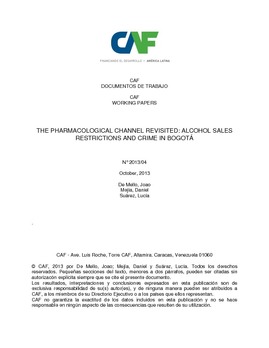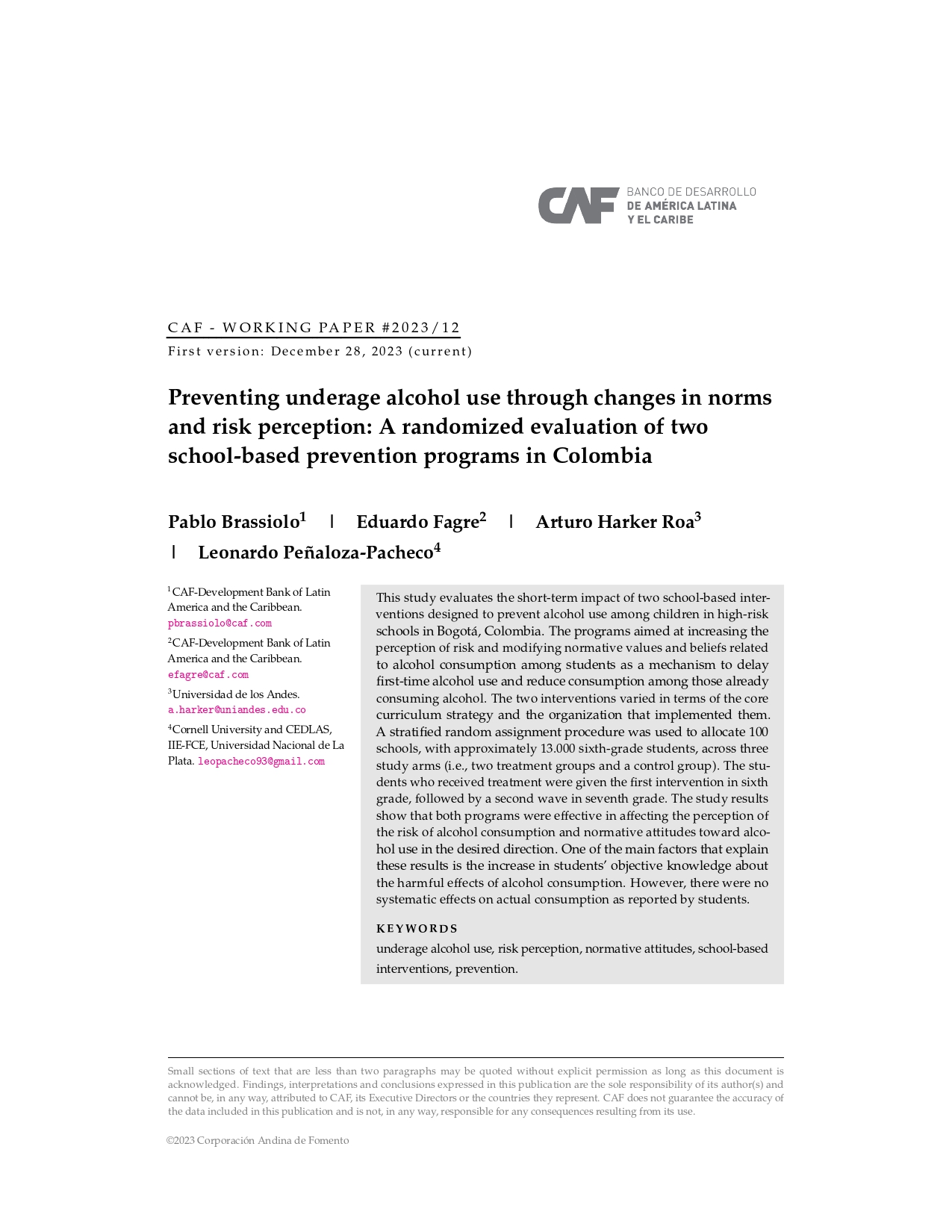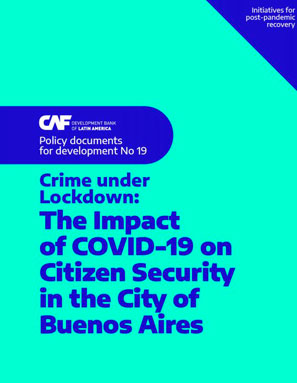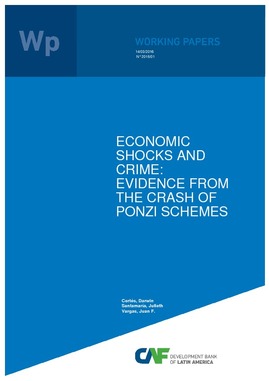The pharmacological channel revisited: alcohol sales restrictions and crime in Bogotá
Resumo
Our goal in this paper is twofold: First, evaluate the impact on crime of the restriction of latenight alcohol sales in Bogotá; and second, quantify the causal effect of problematic alcohol consumption on different crime categories. Using a control group strategy, we explore timeseries and cross-block variation in the restriction to measure its causal effects on several crime categories. We find that the restriction reduced deaths and injuries in car accidents and batteries, compatible with the pharmacological impact of alcohol consumption on crime (Goldstein, 1985). Our results are stronger in areas where the restriction was actually binding (e.g., in blocks with presence of liquor stores) and are highly heterogeneous depending on the number of liquor stores that were restricted at the block level. Finally, we measure the impact of the restriction on alcohol consumption (the first-stage, or mechanism), and quantify the causal pharmacological impact of alcohol consumption on crime using the restriction as an instrument for problematic alcohol consumption (the second stage). We find that alcohol consumption causes deaths and injuries in car accidents and batteries. More precisely, our results indicate that a one standard deviation (s.d.) increase in problematic alcohol consumption increases deaths in car accidents by 0.51 s.d., injuries in car accidents by 0.82 s.d., and batteries by 1.27 s.d.
Assunto
País / Región
Data
2013Cite esta publicação
Item que pertence à coleção
Autor
De Mello, JoaoMejía, Daniel
Suárez, Lucía
Items Relacionados
Preventing underage alcohol use through changes in norms and risk perception: A randomized evaluation of two school-based prevention programs in Colombia
This study evaluates the short-term impact of two school-based inter ventions designed to prevent alcohol use among children in high-risk schools in ...
Crime under Lockdown: The Impact of COVID-19 on Citizen Security in the City of Buenos Aires
This paper studies the impact of the COVID-19 pandemic and the subsequent lockdown on criminal activity in the City of Buenos Aires, Argentina. We find ...
Economic Shocks and Crime: Evidence from the Crash of Ponzi Schemes
In November 2008, Colombian authorities dismantled a network of Ponzi schemes, making hundreds of thousands of investors lose tens of millions of dollars ...






